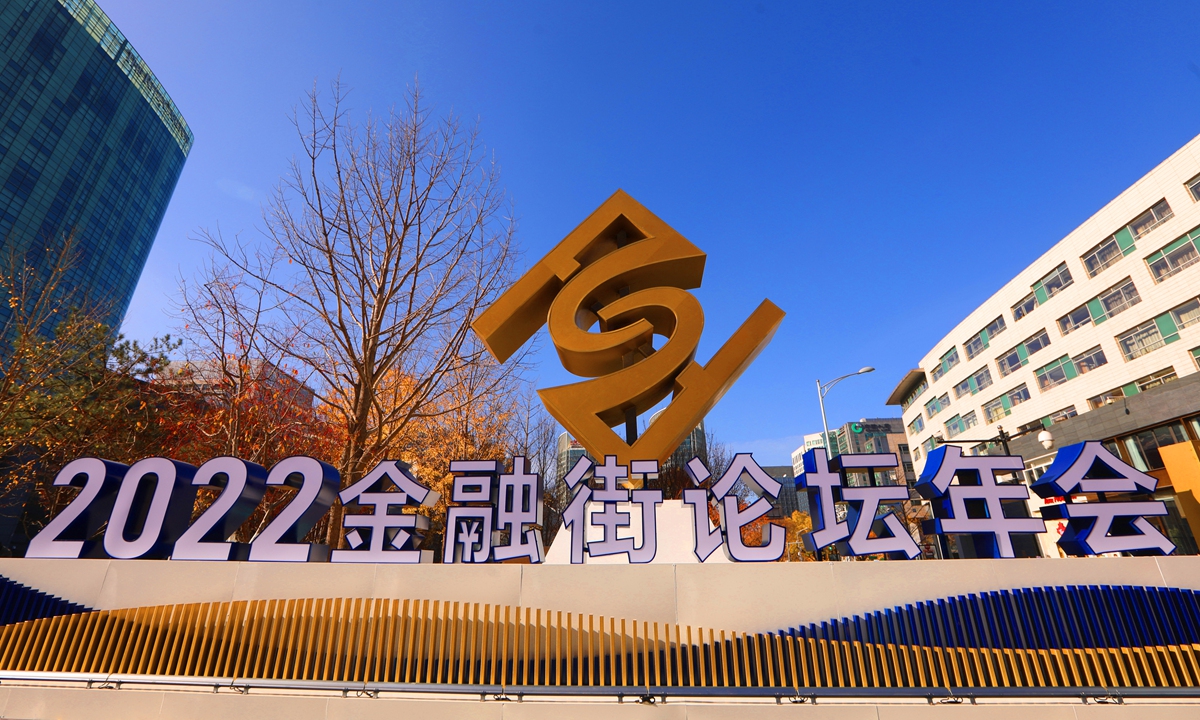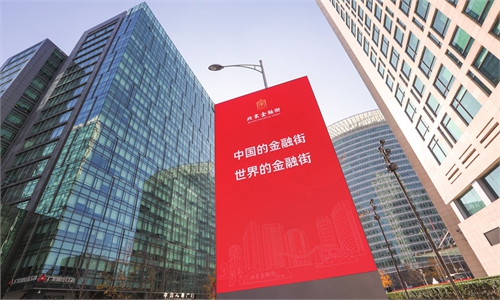Financial sector key to boost growth of green economy, say industry leaders at Financial Street Forum

The 2022 Financial Street Forum Photo: VCG
At a critical stage when the global economy is shifting gear as traditional growth drivers are losing momentum, ensuring energy security and promoting green development will become a new driving force for the recovery and sustainable development of the world economy, a Chinese official said at the Financial Street Forum on Monday.
At a parallel session of the forum, which kicked off on Monday in Beijing, officials and economists from China and overseas discussed topics including establishing clean and stable energy supply systems, speeding up the low-carbon transformation and how the financial sector could boost the growth of the green economy.
Energy is an important material basis and driving force for economic and social development. As an important tool for resource allocation, the financial market can guide the flow of resources to low-energy and environmentally friendly sectors and promote the coordinated development of energy and the environment, Liu Jin, vice president of the China Development Bank (CDB), said at the parallel session.
By actively supporting the development of new-energy technologies and infrastructure construction, the financial sector provides capital guarantees for the establishment of a new-energy system integrating sources, networks and storage, and the steady implementation of the nation's "dual carbon" goal, Liu said.
China has pledged to have carbon dioxide emissions peak before 2030 and achieve carbon neutrality before 2060, making the world's biggest cut in carbon emission intensity in the shortest time frame in history.
As China's first state-owned bank to join the UN Global Compact, CDB has adopted "green" as one of its core values, and it plans to increase its proportion of green loans during the period of the nation's 14th Five-Year (2021-2025) plan by at least 5 percentage points from the level in 2020, and then continue its efforts, Liu vowed.
The bank has also stepped up efforts to serve the construction of energy infrastructure and issuing innovative green bonds to support the construction of major projects. By the end of the third quarter of 2022, the CDB had issued a total of 144 billion yuan ($20.1 billion) of green bonds, Liu introduced.
Local governments in China have also followed up to issue green bonds to boost the economic transformation. South China's Hainan Province issued 5 billion yuan worth of offshore yuan local government bonds in the Hong Kong Special Administrative Region in October, with the proceeds to be invested in the maritime economy, environmental protection, livelihood projects and others.
Zhou Xiaochuan, former head of China's central bank, said at the forum on Monday that the financial sector can boost green development in various ways and stressed that the sector has a responsibility to establish and efficiently use the carbon market, and make it play a more important role in carbon pricing and guiding related financing.
China's national carbon market started online trading in July 2021, and it is the world's largest in terms of the amount of greenhouse gas emissions covered. In the first year, its total trading volume reached 194 million tons, according to the Shanghai Environment and Energy Exchange.
As one of the leading environmental equity trading platforms in the nation, the China Beijing Green Exchange has been continuously improving its core capabilities in carbon pricing, carbon quantification and carbon finance to serve the low-carbon transformation of society and promote the green development of the economy, Wang Naixiang, head of the exchange, said at the forum.
The exchange is developing enterprise carbon accounts and a green project database system to provide technical support for accelerating the green transformation of energy structures and promoting the carbon emissions reductions across the energy industry chain, Wang said.
Global Times

